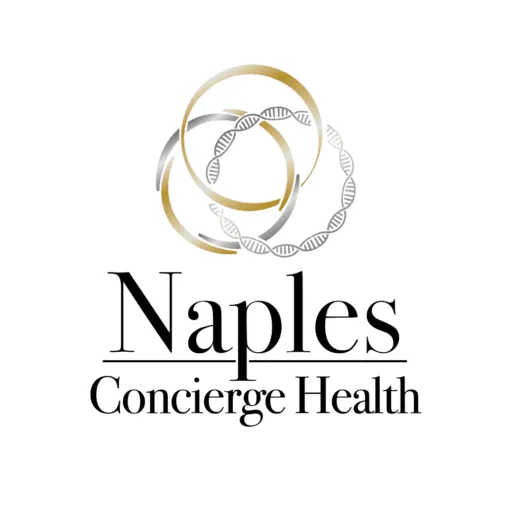When we think of hip fractures, we often associate them with rehabilitation and pain management. However, hip fractures are often more complex than this, as they also have profound implications for mental health.
Recovering isn’t just about regaining mobility; it’s also about coping with the emotional and psychological challenges that come with it.
Many people struggle with feelings of depression, anxiety, and a loss of independence, which can slow down the healing process.
But, with support, a thoughtful rehab plan, and attention to both physical and mental well-being, recovery can be a smoother process.
This article looks at how hip fractures affect mental health and offers practical ways to cope and heal.
The Psychological Toll of Hip Fractures
A hip fracture is a life-changing event, particularly for older adults. While much of the focus is placed on physical recovery, the mental and emotional consequences can be just as significant.
Depression and Anxiety Post-Injury
After a hip fracture, many people experience a noticeable decline in mental health, with depression and anxiety becoming common struggles. A study has shown that as many as 40% of elderly individuals who suffer a hip fracture go on to develop depressive symptoms.
The sudden loss of mobility can bring frustration, helplessness, and a diminished sense of self-worth.
Everyday tasks that once felt effortless may now seem overwhelming, leading to feelings of dependence and loss of control.
The fear of falling again can create a deep sense of anxiety, making individuals hesitant to move—even when their physical recovery is progressing. This hesitation can slow rehabilitation and lead to a cycle of inactivity, further impacting mental well-being.
Without proper emotional support, these feelings can intensify, making recovery even more challenging.
Loss of Independence and Social Isolation
A hip fracture can result in a temporary or even permanent loss of independence, making daily life feel drastically different.
For those who were once self-sufficient or led active lifestyles, suddenly relying on caregivers or family members can be both frustrating and emotionally challenging.
Simple tasks like cooking, driving, or even moving around the house may be impossible without help, which can be challenging to accept.
In fact, studies show that the long-term impact of a hip fracture on mobility is significant with 40–44% of individuals regaining their pre-fracture mobility. In one study, 75% of participants were able to walk across a room independently pre-fracture but only 15% could do it 6 months following.
Reduced mobility also makes socializing harder, causing many individuals to withdraw from friends, activities, and community events. Over time, this isolation can lead to feelings of loneliness, lower self-esteem, and worsening depressive symptoms.
Without regular social interaction and a sense of independence, many people find maintaining a sense of purpose challenging, which can further affect their emotional well-being and slow recovery.
How Mental Health Affects Physical Recovery
Mental health after injury plays a crucial role in physical recovery, as emotional well-being can significantly influence how the body heals and responds to treatment.
The Mind-Body Connection in Rehabilitation
Mental health plays a crucial role in physical healing. Patients dealing with depression or anxiety often struggle with motivation, which can slow down rehabilitation. A negative mindset can also amplify the perception of pain, making the recovery process feel even more challenging.
Emotional well-being is closely tied to how well people recover from physical illness. Those with better emotional health experience faster recovery and higher survival rates.
The Role of Motivation and Emotional Support in Healing
As older adults often encounter psychological challenges that can affect their hip fracture recovery, implementing early screening allows health systems to identify and address these factors, helping to prevent them from delaying recovery or increasing the risk of mortality.
Patients who feel supported and encouraged typically recover more quickly. Emotional resilience and a positive outlook can improve adherence to physical therapy and rehabilitation programs.
Involving family, providing professional counseling, and developing structured rehabilitation plans that address both physical and emotional well-being can lead to more successful hip fracture recovery outcomes.
Coping Strategies for Mental and Emotional Well-Being
Effective coping strategies for mental and emotional well-being, such as mindfulness, support networks, and therapy, can help individuals manage stress and foster a positive mindset during recovery.
Support Groups and Counseling
Connecting with others who have experienced similar injuries can be incredibly beneficial. Support groups provide a space to share concerns, receive encouragement, and learn coping strategies from peers.
Professional counseling can also help patients navigate their emotions and develop strategies for managing anxiety and depression.
Adapting to Lifestyle Changes and Mobility Limitations
Adjusting to new mobility challenges requires patience and support.
Utilizing assistive devices, modifying living spaces for accessibility, and engaging in low-impact activities such as seated exercises or water therapy can improve confidence and overall well-being.
Encouraging Family and Caregiver Involvement
Having a strong support system is essential. Family members and caregivers should be educated on the psychological effects of hip fractures and encouraged to offer emotional support. Simple actions such as regular check-ins, engaging in shared activities, and encouraging movement can significantly affect the patient’s mental state
The Importance of a Holistic Rehabilitation Approach
A holistic rehabilitation approach, which focuses on physical and mental health, is essential for promoting overall recovery and improving long-term patient outcomes.
Integrating Mental Health Support into Physical Therapy
Effective rehabilitation support should not focus solely on physical recovery but also include mental health support. A comprehensive approach incorporating counseling, mindfulness techniques, and social engagement can improve overall well-being.
Meditation, Mindfulness, and Stress Management Techniques
Mindfulness-based techniques, including meditation and breathing exercises, can help patients manage stress and anxiety. Encouraging relaxation practices can enhance focus, reduce fear, and foster a more positive rehabilitation experience.
Trust Naples Concierge Health for Holistic Recovery
At Naples Concierge Health, we recognize that healing from a hip fracture is about regaining physical strength and nurturing mental and emotional well-being.
As your co-pilot in the healthcare journey, we offer comprehensive health crisis support to assist you navigate immediate needs following a hip fracture. We will work with you to create personalized recovery plans, offering guidance and coordinating with specialists, checking in regularly to ensure your recovery is progressing towards your intended goals.
For seniors that need additional support beyond a hip fracture, we provide comprehensive senior and geriatric care so you feel heard and understood not only in your path to recovery but beyond.
You deserve the best quality of life possible, and Naples Concierge Health wants to help you maintain it.
Contact us today to learn more or get started.

